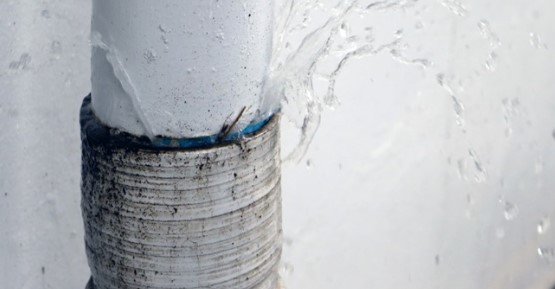Leading Causes Of Water Damage In Commercial Buildings

Water damage to commercial buildings can be costly, disrupt operations, and pose a safety risk. The consequences are devastating. Understanding the causes of water damage in commercial properties can help business owners, property managers, and others take proactive measures to avoid this.
This article will highlight the prevention measures and explore the major causes of damage from water in commercial buildings. You must hire a professional water restoration near me to restore water damage to minimize your business’s downtime.
1. Pipes Leaking, Burst, or Leaking
The most common cause of water damage to commercial properties is burst or leaking pipes. Over time, the extensive commercial plumbing system can wear down and lead to leaks or bursts. Cold weather can exacerbate the problem because water inside pipes can freeze and expand.
It is important to note that leaking and burst pipes can occur when corroded. Regular plumbing system checks can identify weak points and prevent them from causing significant damage. Additionally, insulating the pipes in areas subjected to extreme temperatures helps prevent them from freezing.
2. Roof Leaks
Roof leaks are the leading cause of water damage in commercial buildings, especially those in areas susceptible to heavy snowfall or rainfall. Roofs can become damaged over time, including missing shingles and deteriorated Flashing. Standing water or clogged rain gutters on a roof can also cause water infiltration.
If you want to prevent water damage caused by roofs, inspect your commercial property’s roof regularly, especially after extreme conditions. Be sure to address any damage as soon as possible and ensure that your downspouts, gutters, and other drainage systems are functioning correctly and free of debris.
3. Damaged Gutters, Downspouts, And Blocked Gutters
Gutters are crucial in diverting rainwater to the outside of the building. If the gutters become clogged due to debris, ice, or leaves, water will accumulate and overflow. This can result in water seeping through the foundation, which may cause structural damage to the house, basement flooding, and mold growth.
Regular gutter cleansing is a great way to protect your home from water damage. In addition, gutter guards help minimize the amount of debris entering the system, reducing the chance of clogs. To avoid water damage, downspouts should be positioned to divert water away from a building’s foundation.
4. Natural Disasters And Flooding
Flooding caused by natural disasters (such as heavy rainfall, hurricanes, or overflowing streams) threatens commercial buildings. Floodwaters damage buildings and destroy equipment and documents. They may also contain contaminants that are hazardous to customers and staff.
You can take some steps to minimize flooding damage, even though it is beyond your control. If your home is in a high-risk area for flooding, you should consider installing flood barriers. You can also install waterproofing measures such as basement vents. If you live in a flood-prone area, ensure your building has a comprehensive flooding emergency plan. Also, consider investing in flood insurance to cover potential damages.
5. Malfunctioning Sprinkler Systems
Fire sprinklers can be essential in protecting commercial buildings from damage due to fire, but they also have the potential to cause water damage if they malfunction. Inadequately maintained or older sprinkler systems are prone to leaks and unexpected water discharges. These can lead to extensive property damage.
Sprinkler systems need to be regularly inspected and maintained to function properly and only turn on during emergencies. In addition, train employees to avoid accidentally activating the system.
Read also: It’s Showtime! Easy Beetlejuice Décor Ideas for Your Home This Halloween
Preventing Commercial Buildings from Water Damage
Water damage prevention requires constant vigilance in commercial building maintenance. Below are some tips on how to reduce the risk.
- Schedule regular inspections to ensure that plumbing, HVAC systems, roofs, or other vulnerable areas are regularly inspected.
- Cleaning gutters and downspouts is essential to preventing clogs.
- Install water leak detection systems that will alert you early.
- Assure that all staff are familiar with how to react in water emergencies.
Conclusion
Various factors can lead to water damage in commercial buildings, including burst pipelines and natural disasters. By understanding and taking the necessary preventative actions, you can protect and save your home from costly damage caused by water. Water damage can be a serious problem for your business. If it occurs, you should find a reliable company near me that offers water restoration services. This will minimize downtime while protecting your assets.





